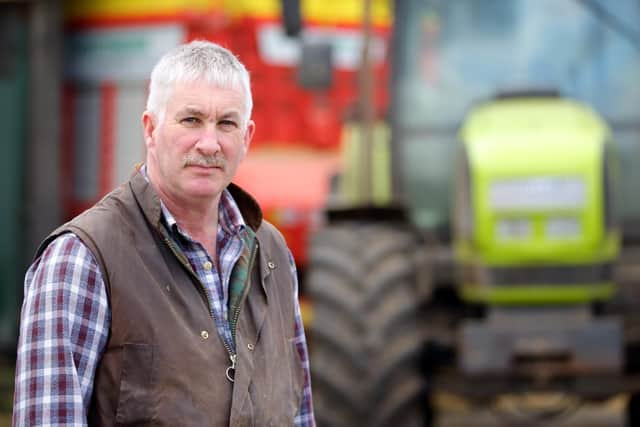Climate Change Bill now in doubt
and live on Freeview channel 276
This would be particularly the case if the Secretary of State, Brandon Lewis MP, decides to change the date of Assembly elections. Currently, scheduled for 5 May, there is now scope to bring that date forward to the last week of March.
Under such circumstances, it is widely believed that a significant number of the bills currently under scrutiny at Stormont would simply run out of time.
Advertisement
Advertisement
The Assembly’s standing orders provide little room for manoeuvre when it comes to the time required to debate and enact legislation.


Meanwhile, the Ulster Farmers’ Union (UFU) has responded to the result of the Assembly vote, taken on Tuesday past (1 February), which saw the majority of MLAs supporting a proposal to set a ‘net zero’ emissions target for Northern Ireland by 2050.
UFU president Victor Chestnutt commented: “We need to stop global warming, but a net zero target will not do this. It is unrealistic and can only be met by cutting livestock numbers on local farms, and even by doing that, it would still not solve climate change.
“Instead, it will export our food production overseas to meet consumer demand for meat and dairy products, where emissions are higher and standards are lower.
Advertisement
Advertisement
“A total of 113,000 jobs in the agri food sector will become vulnerable overnight if this net zero target of 2050 becomes legislation. Every single job that is linked to farming in some way will be impacted, as well as jobs in rural areas that depend on business from agri food workers. Jobs are needed to sustain rural communities. Rural jobs are all connected together and most of these are underpinned by farming but this net zero target by 2050 has just laid them all on the line.
“We exhausted every avenue available to us in advance of the debate today. Conducting various meetings with MLAs, organising on-farm visits so our farmers could voice their concerns directly with their local politicians, and commissioning KPMG to conduct the economic impact assessment on the far-reaching consequence of the Private Member’s Bill (PMB) on agriculture and rural communities. Yet, local MLAs have worked to their own agenda.
“They have undermined expert advice thinking they know better, supporting a target that will be the ruination of agriculture and will tear the very fabric of rural communities apart.
“There are no guarantees that the other protections put forward by MLAs will be enough. Promises of a “just transition” and a “just transition fund for agriculture” mean nothing. It’s not a just transition when a target has been set that goes against expert advice. It begs the question, why would the UK government give Northern Ireland extra money to meet climate targets that they continually advised us not to set?” Responding to Tuesday past’s developments farm minister Edwin Poots said:“While we have ensured that the target to net zero is set at 2050 rather than 2045, to push to net zero within that timeframe will have profound and irreversible consequences for our agri-food sector and our economy. This is deeply disappointing.
Advertisement
Advertisement
“I know the agriculture sector fully recognises the climate challenges we face and they have already put a range of steps in place to help us tackle the issue together. There is widespread acceptance of the need to minimise the impacts of climate change in both the agriculture and environment sectors. But this must not be to the detriment of one particular sector that employs almost 100,000 people and generates £5billion for our economy.”
Continuing, Minister Poots said: “The targets in the Bill I had introduced to the Assembly had been endorsed by a majority of the AERA Committee and the Executive, and the evidence based and science-led targets set within it, would have put us on a balanced pathway to meet our commitments to the UK’s wider net zero targets through a just transition, without damaging our economy and agri-food sector.
“No one benefits from impossible targets. I still believe we must apply science and evidence in full. I will now consider last night’s events and aim to find a way forward that minimises the impacts on our agri-food sector and maximises the benefits for the climate change agenda. The approach and actions have to balance climate change, the economy and the wider environment.”